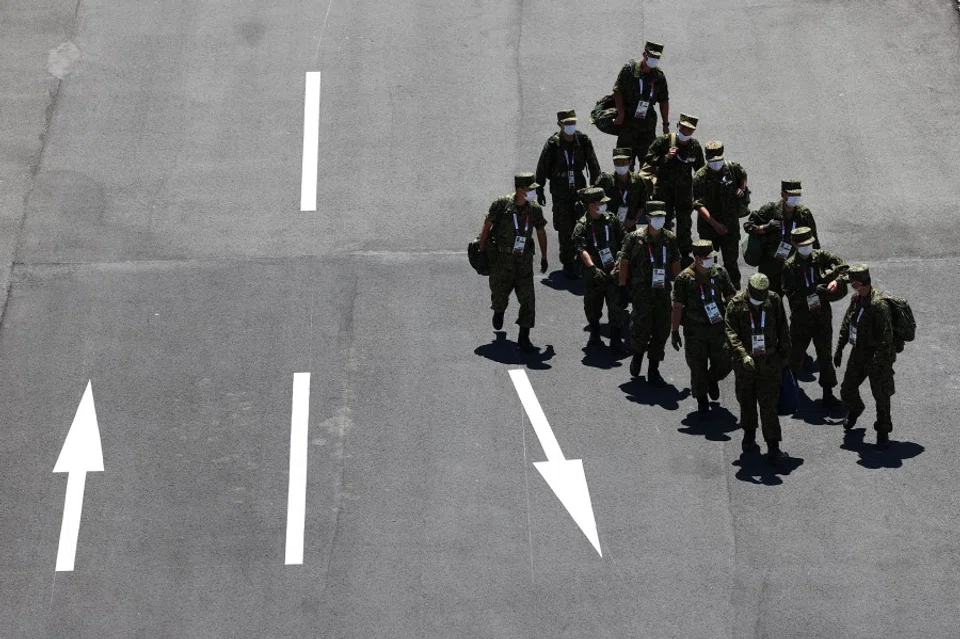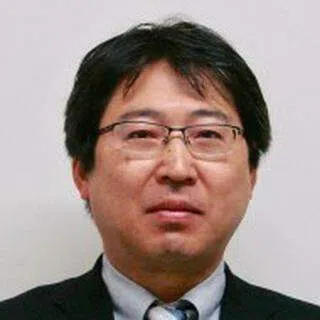Japanese academic: Will Japan send troops to 'protect' Taiwan?
Japanese academic Shin Kawashima analyses Japanese Deputy Prime Minister Taro Aso's recent comments where he made reference to a possible "Survival Threatening Situation" in Taiwan. How ready is Japan to step in?

The comments made by Japan's Deputy Prime Minister and Financial Minister Taro Aso with regard to a potential Taiwan emergency in his speech on July 5 are provoking controversy. Although I was not present for the speech myself, according to reports, Deputy Prime Minister Aso stated that if Taiwan were to experience a major problem, it "could relate to a survival threatening situation," and that if that happened then "Japan and the United States would have to protect Taiwan together."
This would be a situation [Survival Threatening Situation] in which an armed attack against a foreign country that is in a close relationship with Japan occurs, which as a result threatens Japan's survival and poses a clear danger to fundamentally overturn people's right to life, liberty and the pursuit of happiness.
It is reported that Deputy Prime Minister Aso said that in the event of an emergency in Taiwan, there is a possibility that it could be classified (by Japan) as a "Survival Threatening Situation." That classification would mean that Japan would be able to exercise its right of collective self-defence. At a press conference after a Cabinet meeting held the following day, however, he avoided making any clear statement, saying instead that the Japanese government "has to consider various things," and that it was "not possible to say whether or not any particular situation would qualify as a survival threatening situation."
At the same press conference after the Cabinet meeting on 6 July, Katsunobu Kato - Chief Cabinet Secretary for the Suga administration - avoided giving a clear answer when questioned on the matter, saying that it would be "difficult to make sweeping statements" as to whether or not an emergency in Taiwan would qualify as a "Survival Threatening Situation." He went on to explain that Japan would "make objective and rational judgements based on all available information as to whether or not any particular situation qualifies as an emergency." This is the usual explanation that has been given in the past, and emphasises that the government's policy remains unchanged. Chief Cabinet Secretary Kato also avoided commenting with regard to Deputy Prime Minister Aso's remarks. When questioned with regard to the government's view contradicting Deputy Prime Minister Aso's remarks, he declined to comment further, saying that it was an "assumptive problem."

From a logical point of view, there are several possibilities for responses by the Japan Self-Defense Forces (JSDF) in the event of an emergency in Taiwan. Of course, there are also the options of observing silently from the sidelines or simply expressing concern; but in terms of actual involvement, there are the following three possibilities.
The first possibility is a "Significant Impact Situation," which applies in cases where leaving the situation unaddressed would have a significant impact on the peace and safety of Japan, such as posing the risk of an armed attack on Japan. In such a situation, the JSDF may receive logistical support from US armed forces and engage in search and rescue activities, in accordance with the Significant Impact Situation Act.
The second possibility is the "Survival Threatening Situation" which Deputy Prime Minister Aso touched upon on this occasion. This would be a situation in which an armed attack against a foreign country that is in a close relationship with Japan occurs, which as a result threatens Japan's survival and poses a clear danger to fundamentally overturn people's right to life, liberty and the pursuit of happiness. In such a situation, it is anticipated that Japan would exercise its right to collective self-defence, and the JSDF would launch armed counter attacks in response to attacks against US armed forces or other allies, in accordance with the Self‐Defense Forces Act, etc.

The third possibility is an "Armed Attack Situation," in which an armed attack against Japan occurs, or in which there is a clear and impending danger of such an attack occurring. In such a situation, Japan would exercise its right of individual self-defence, and the JSDF would launch counter attacks in response to attacks against Japan itself.
While these are the basic patterns, the decision as to which pattern a particular situation falls under rests with the Cabinet. Moreover, although the approval of the Diet is required, in a state of emergency this approval may be obtained after the fact. For Cabinet decision-making, the two key discussion bodies are the Nine-Minister Meeting, which includes the Deputy Prime Minister, and the Four-Minister Meeting, which consists of the Prime Minister, Foreign and Defense Ministers, and the Chief Cabinet Secretary. In the event of a serious state of emergency, a State of Emergency Ministerial Meeting is organized, consisting of the Prime Minister, Chief Cabinet Secretary and other ministers specified by the Prime Minister in advance.
As a politician, Deputy Prime Minister Aso himself has made a comparatively large number of improper remarks in the past. There is also a strong sense that Japanese society regards his comments on this occasion as just another addition to his long list of gaffes.
In the event of an emergency in Taiwan, it is unclear if discussions would be held as to whether or not the situation qualifies as a state of emergency, or if a State of Emergency Ministerial Meeting would be organized. At the very least, we know that Deputy Prime Minister Aso is a member of the Nine-Minister Meeting, but not a member of the Four-Minister Meeting. We also know that Chief Cabinet Secretary Kato, who would be a member of all these meetings - including the Nine-Minister Meeting and Four-Minister Meeting - has not confirmed the comments made by Deputy Prime Minister Aso.

Most significantly, Deputy Prime Minister Aso himself did not reaffirm the comments he made on 5 July at the press conference on 6 July, and avoided making a clear statement, saying instead that it was "not possible to say whether any particular situation would qualify as a survival threatening situation."
Given these facts, we can see that the Japanese government has not changed or amended its policy with regard to its response in the event of an emergency in Taiwan. As a politician, Deputy Prime Minister Aso himself has made a comparatively large number of improper remarks in the past. There is also a strong sense that Japanese society regards his comments on this occasion as just another addition to his long list of gaffes. On the other hand, however, it is also a fact that some politicians are becoming actively vocal about the possibility of a Taiwan emergency, and it is understandable that China should express concerns with regard to this.
There is one important point for discussion to emerge from this controversy, which is that Deputy Prime Minister Aso stated that the Japanese government "has to consider various things." This indicates that the Japanese government has not thought deeply and extensively with regard to the possibility of a Taiwan emergency. That is, when Deputy Prime Minister Aso says that the government has to consider things, it means that they have not yet considered them. I wonder whether perhaps the backdrop to gaffes and improper remarks such as these made by politicians is actually that the government has not considered things sufficiently or performed enough simulations of possible scenarios.





![[Photos] Fact versus fiction: The portrayal of WWII anti-Japanese martyrs in Taiwan](https://cassette.sphdigital.com.sg/image/thinkchina/3494f8bd481870f7c65b881fd21a3fd733f573f23232376e39c532a2c7593cbc)